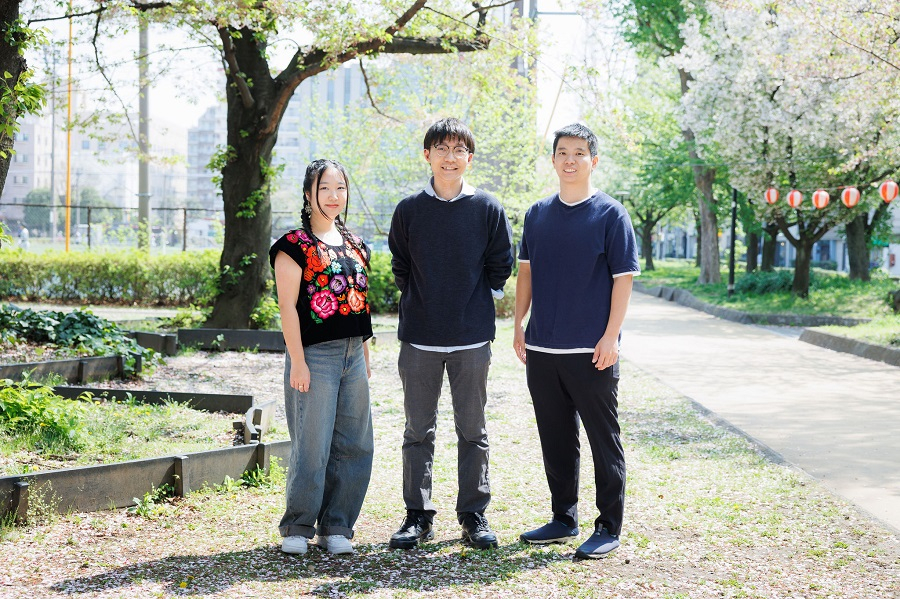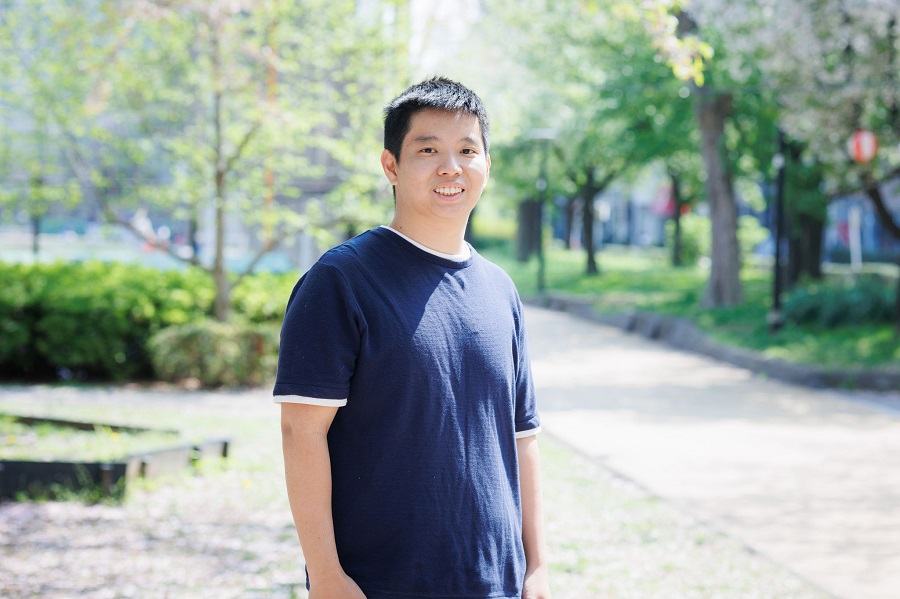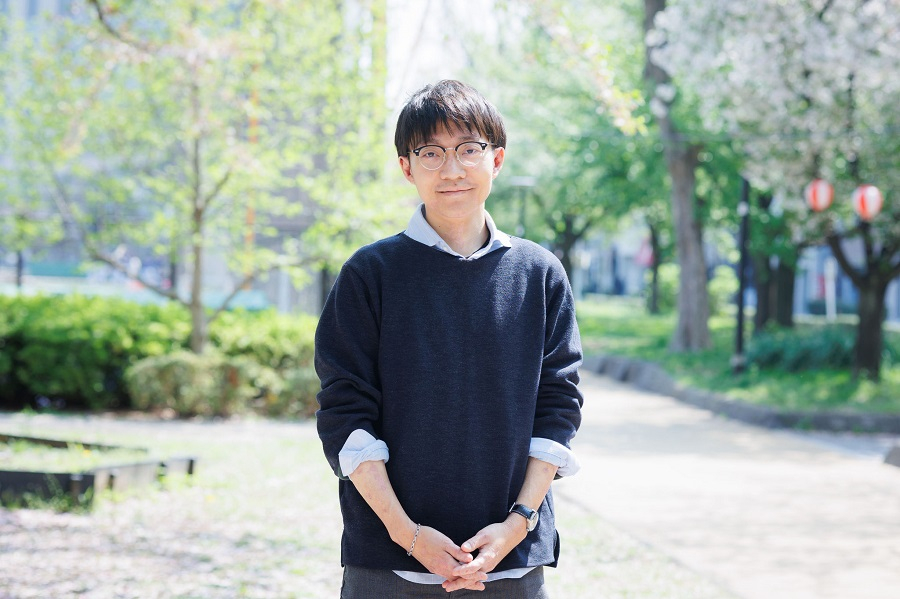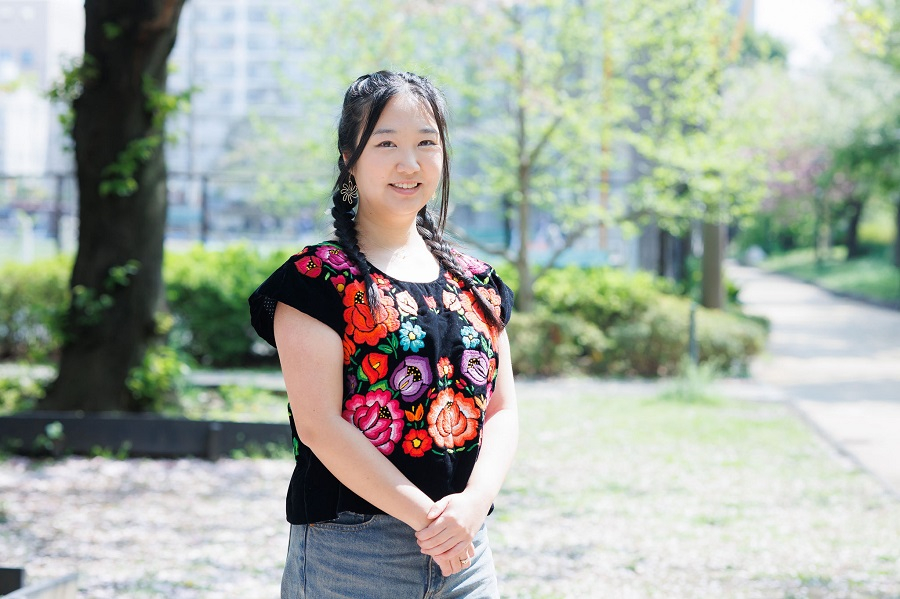Intercultural Crosstalk
People Who Have Come to Japan, The Country of Their Roots② -Japan and I-

See their profiles here
Click for "1st Round" Here
Round 2: Japan and I
The three participants came to Japan, the country of their roots, with their own thoughts and feelings. In round 2, we asked them about their impressions of Japan, their feelings upon arriving in Japan, and how their thoughts on identity have changed.
Please Tell Us About Your Impressions of Japan Before Arriving.

I visited Japan several times when I was a child, but I only stayed at my grandmother's house and didn't interact with Japanese people my age. So, my impression of Japan was mostly based on the dramas (Japanese TV soap operas) and anime I watched in Mexico.
I also have a strong impression from dramas and anime. In Argentina, children can't go out alone due to safety concerns. The scenes in Japanese dramas where high school students walk home by themselves after school were very memorable.
I really thought that was cool. I would have liked to try stopping somewhere on my way home from school.
Also, Japan has a lot of train lines, doesn't it? There are trains in Argentina, but only in some cities. Come to think of it, there used to be old Marunouchi Line trains running in Buenos Aires.
Looking back now, I think my impression of Japan was difficult to grasp. For example, in the United States, the identity of "American" is deeply rooted in the country's history and religion. Hong Kong, too, has a culture that values economic rationality.
On the other hand, it's a little difficult to see what Japanese people value. Religion is not a topic of conversation, and many people are not religious. Family values and regional values also vary from person to person. I think this tendency is particularly strong in Tokyo.
I can relate to that very well.
It's a culture of "tatemae", so it's difficult to understand. ("Tatemae" as in outward behavior, in contrast with the true feelings).
Once, I went to my vocational school wearing only a camisole. It's normal attire in South America, but my Japanese friends asked me, "Aren't you cold?" At the time, I replied, "No, it's super hot!" But later, I realized that they meant, "It's inappropriate to go out in that outfit." I wish they had just said it straight! It left me feeling frustrated.
Many Japanese people care about how others perceive them. In Western countries, including Mexico, what matters most is what you want to do. I also think that being happy in your life is the most important thing.
What Do You Like About Living in Japan and What Surprises You?

The best thing is the safety. In Japan, I can go out on my own. In Mexico, you can't get around without a car, and women can't go out alone at night. It felt like being in a birdcage.
In Japan, I can go wherever I want, and I can even take a night bus by myself. That's a big deal for me.
In Japan, I think it's very easy to become independent. For example, if I want to travel to Argentina from Japan, I can save up the necessary money by working part-time for a while. But if I want to come to Japan from Argentina, it's difficult even after working for 2 years. Japan is economically prosperous, convenient, and easy to live in.
On the other hand, I sometimes think that the low level of happiness among Japanese people is because life is too convenient. People in South America have a lower threshold for happiness. They feel happy with simple things, like meeting friends and enjoying a delicious meal. Living in Japan, where you can get anything you want, I think people end up seeking even more enjoyment, which actually lowers their level of happiness.
It's definitely good to live in such a peaceful place. The situation varies depending on the area, so this may be more of a feeling based on living in Tokyo rather than Japan as a whole.
Another thing that surprised me was the relationship between seniors and juniors (senpai and kohai). In Argentina, even if there is a 20- or 30-year age difference, people don't use honorific language at all, but in Japanese universities, you have to use honorific language even if you are only 1 year younger than someone.
The culture of being conscious of age differences was new to me. Sometimes it can be difficult to establish an equal relationship with someone.
Do You Think There Are Adequate Support Systems For Immigrants Moving To Japan From Overseas?

I came here to study abroad, and the university took care of all the procedures, so I didn't have any problems.<
My foreign friends often tell me that it's very difficult to find a place to live in Japan.
I didn't have many problems because my vocational school provided support.
I often hear about problems with cell phones and bank accounts. You can't open a bank account without a cell phone number, but you can't sign up for a cell phone plan without a bank account. I had a friend who was confused about which to do first.
The reasons why immigrants come to Japan and the circumstances they find themselves in vary greatly. Listening to what you both have said, it is clear that there is a support system in place for international students.
However, Japan has not been a country that has actively accepted immigrants in the past, so I think there is a structural difficulty in creating support systems for immigrants who come to Japan to live and raise children.
Has Living in Japan Changed Your Thoughts About Your Roots and Identity?

Lately, when I'm in Japan, I feel like I'm Japanese, and when I'm in Argentina, I feel like I'm Argentinean. It's like having a split personality. I feel like my personality changes when I live in a country and respect its culture.
For example, in Japan, I get annoyed when people are noisy on the train. But in Argentina, everyone is noisy, so I don't mind it at all. I feel like I've adapted to each culture.
When I was in Hong Kong and the US, people around me would say things like, "You must like this food because you're Japanese," or "Japanese people are clean, so you must be good at cleaning," and I felt like I was representing Japan. Living in Japan, where everyone around me is Japanese, that sense of representing Japan fades. But on the other hand, I sometimes feel that there's an underlying pressure to act a certain way because I'm Japanese. It's probably the difference between whether my Japanese identity is directed outward or inward.
When I was in Mexico, I was part of a Japanese community that valued Japanese culture, so I thought that my Japanese roots and identity were stronger. But when I started living in Japan, I began to feel my Mexican roots more strongly, and I wondered if it was different after all. Living in a foreign country, there are few opportunities to realize your identity. Now, I accept both my Japanese and Mexican roots.
We heard about the impressions of Japan from the perspectives of 3 people who grew up abroad. It was very interesting to hear about the values they developed while growing up overseas with knowledge of Japanese culture.
In the 3rd round, we will discuss their dreams and goals for the future, incorporating topics related to their work.
── Continued in the Following Issues
